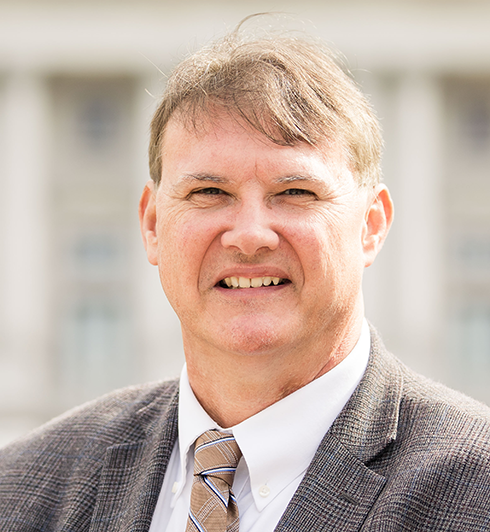A Pennsylvania court may strike down a labor law that is clearly unconstitutional, but elected officials shouldn’t wait on the legal system to rectify state law with Supreme Court precedent, the lead sponsor of pending legislation said in an interview.
Since the Lancaster County Court of Common Pleas is now expected to rule on the constitutionality of Pennsylvania’s “fair share fee” law, state Rep. Kate Klunk, a York County Republican, sees an opportunity for her colleagues in both parties to “end the confusion” without delay. In 2018, the U.S. Supreme Court ruled in Janus v. AFSCME that under the First Amendment government workers who are not union members cannot be forced to pay union fees.
The decision affected about 5 million workers in 22 states including Pennsylvania. But Klunk is concerned that too many public employees remain largely unaware of their rights despite the Supreme Court ruling. That’s why she’s sponsoring HB 2042, which would require public employers to notify nonunion members and new employees that they do not need to make financial contributions to a union as a condition of their employment.
“In my conversations with teachers and municipal employees, they are primarily concerned about doing their job whether it’s in the classroom or in another setting and they are not well versed with employment law,” Klunk observed. “Sometimes they don’t understand what they are signing, and they don’t have someone sitting there with them to go through the process.”
The first notification of employee rights would be sent out 30 days after Klunk’s bill becomes effective. From that point forward, notifications would be sent out annually every January. Klunk’s bill would also repeal the “fair share fee” law that is no longer enforceable after the Janus decision.
Earlier this month, the Pennsylvania Commonwealth Court directed the Lancaster Court of Common Pleas to evaluate constitutional claims made against Pennsylvania labor laws that now conflict with federal law. A Lancaster judge had previously ruled that a lawsuit against the Pennsylvania State Education Association was moot after the union agreed to stop collecting fees from nonmembers.
“The courts want this issue of fair share fees settled,” Klunk said. “But we can do this much quicker legislatively, and we can do it in a matter of two to three weeks. I’d say we have all the more reason to do it now that this case has been kicked back to the Lancaster court. These cases are going to continue to play out until there’s some kind of finality. My bill strikes fair share fees from the books so they cannot be included in future contracts. We can end the confusion.”
The PSEA, the largest public employee union in the state, and its affiliates have inserted fee provisions into at least 20 collective bargaining agreements signed since the Janus decision, according to the Fairness Center, a nonprofit public interest law firm based in Harrisburg.
“The Supreme Court made clear in 2018 that public employee unions cannot force nonmembers to pay a union,” Nathan McGrath, president of the Fairness Center, said in a press statement. “But Pennsylvania law still says unions can do just that. And almost four years after Janus, PSEA and its affiliates have continued to write illegal fair share fee provisions into teachers’ collective bargaining agreements. Our clients want to force PSEA to respect the Supreme Court ruling.”
The Fairness Center represents retired Chester County teacher Jane Ladley and Lancaster County teacher Chris Meier in litigation they filed against the PSEA more than seven years ago. Both teachers raised religious objections toward paying the union. They also both had a right to send their fees to a charity rather than a union. But the PSEA rejected their charities of choice. After the Janus ruling, the union agreed to return the money to the teachers. But Ladley and Meier continue to seek definitive court action that would strike down the fair share fee law. The Lancaster court could potentially deliver that ruling.
On Tuesday, Klunk’s bill was among four of the labor reform bills the committee approved, which means they are all eligible for a full vote in the House. One of the other bills (HB 844) would protect the privacy of public employees so their personal information like their Social Security numbers, addresses, and phone numbers cannot be shared in the collective bargaining process. Another bill (HB 845) calls for greater transparency in the collective bargaining process while another (HB 2048), known as paycheck protection, prevents public employers from deducting political action committee (PAC) contributions from public employees’ wages using public payroll systems.
Nathan Benefield, senior vice president of the Commonwealth Foundation, offered the following comments:
“Pennsylvania should not have unconstitutional laws on its books. Nor should we use taxpayer-funded payroll systems to collect campaign cash. Correcting these problems will empower public employees and help ensure fairness in government. It’s encouraging to see House lawmakers moving to protect employees’ private data and shine the light of transparency on deals that cost taxpayers millions of dollars.”


